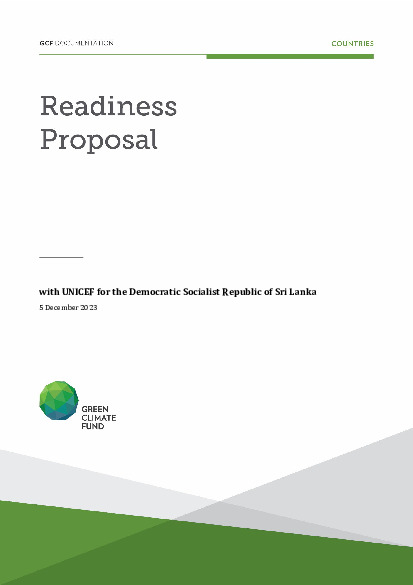Enhancing the Climate Resilience of the Water, Sanitation and Hygiene sector in Sri Lanka

Enhancing the Climate Resilience of the Water, Sanitation and Hygiene sector in Sri Lanka
The inadequate investment in capacity development in Sri Lanka's WASH sector presents significant challenges. The sector's vulnerability to climate change must be recognized, including its exposure, sensitivity, and adaptive capacity. This lack of capacity has resulted in a failure to integrate climate considerations adequately into sectoral policy frameworks and strategies, hindering the sector's mainstreaming into the country's climate policies and investment plans. However, as climate change continues to affect the sector, stakeholders are increasingly acknowledging these issues. By providing the necessary support and resources, Sri Lanka's WASH sector can become more resilient and better equipped to meet the needs of its citizens.
The goal of the proposed readiness project is to equip the Sri Lankan WASH sector with the necessary policies and capacities to effectively manage its institutions and stakeholders in identifying climate risks and low-emission opportunities and translating them into action while also mobilizing the climate finance needed to mitigate the sector's vulnerability to climate change and carbon emissions.
As the Delivery Partner (DP), UNICEF will implement this project under the guidance and direction of the National Designated Authority (NDA) of Sri Lanka. The project will ultimately increase the sector’s resilience to climate change and contribution to low-emission development.
The main beneficiaries of this proposal are institutions and organizations of the WASH sector, including the Ministry of Water Supply and Estate Infrastructure Development (MoWS), the National Water Supply & Drainage Board (NWSDB) the Water Resources Board (WRB), the Department of National Community Water Supply (DNCWS), the Central Environment Authority (CEA) under the Ministry of Environment (MoEnv), Ministry of Education (MoE), Ministry of Health (MoH), Ministry of Energy, State Ministry of Solar, Wind and Hydro Power Generation Projects Development, Sri Lanka Sustainable Energy Authority ,communities, local organizations/CSOs, and Community-based Organizations (CBOs). By incorporating the WASH sector into the GCF programming, the NDA can expect a more comprehensive pipeline development.